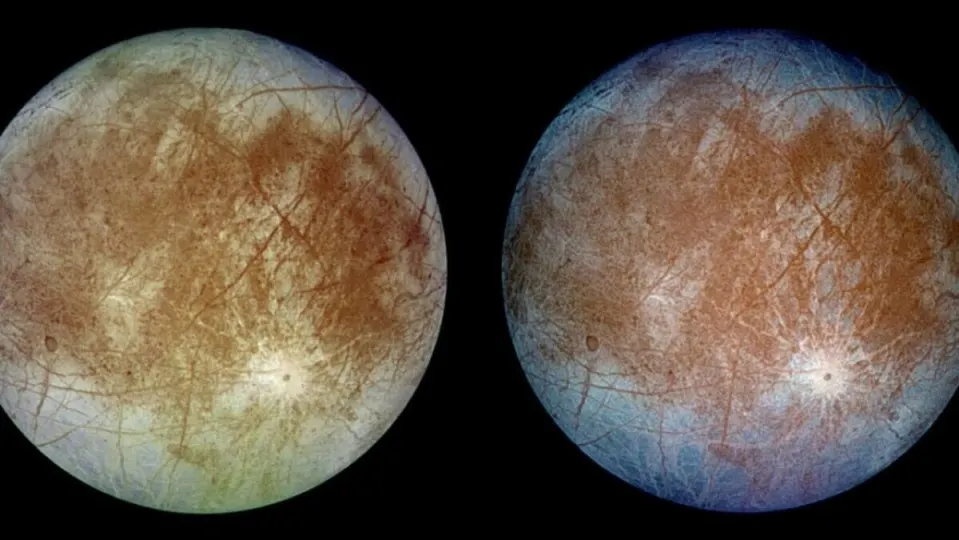NASA and astronomers suspect that this moon in orbit around Jupiter harbors a gigantic sea between 65 and 180 km deep.
Now, new observations from the powerful James Webb Space Telescope show that a region of Europa’s surface contains carbon dioxide, an important ingredient for life as we know it.
The finding is far from proof of the existence of life, let no one jump to conclusions, but it makes the ocean world an even more attractive place for further exploration.
One of the great discoveries of our era
“We now believe we have observational evidence that the carbon we see on Europa’s surface comes from the ocean. This is not trivial. Carbon is a biologically essential element,” Samantha Trumbo, a planetary scientist at Cornell University who analyzed the Webb telescope data, said in a statement.
Europa is hundreds of millions of kilometers from Earth. But NASA plans to get much closer. In 2024, the space agency plans to launch the Europa Clipper mission, which aims to “determine if there are places beneath the surface of Jupiter’s icy moon Europa that could harbor life,” NASA explained.
The spacecraft will pass by the moon dozens of times, capturing unprecedented data. In this brackish sea, conditions could be suitable for life. Whether it could contain primitive life, however, is another question.
And all thanks to the James Webb Telescope
The James Webb Telescope, a scientific collaboration between NASA, the European Space Agency and the Canadian Space Agency, is designed to explore the depths of the cosmos and reveal new insights into the early universe. But it is also observing intriguing planets in our galaxy, as well as the planets and moons of our solar system.
At Mashable they have explained how the James Webb is achieving unprecedented feats, and will likely do so for decades to come These are the reasons it is such a powerful tool:
- Giant mirror: Webb’s light-capturing mirror measures more than 6 meters in diameter. That’s two and a half times larger than the mirror on the Hubble Space Telescope. By capturing more light, Webb can see more distant and older objects. The telescope observes stars and galaxies that formed more than 13 billion years ago, just a few hundred million years after the Big Bang.
- Infrared view: Unlike Hubble, which sees mainly light visible to us, Webb is primarily an infrared telescope, which means it sees light in the infrared spectrum. This allows us to see much more of the universe. Infrared has longer wavelengths than visible light, so light waves slip more efficiently through cosmic clouds; light does not collide as often with these densely packed particles or get scattered by them. Ultimately, Webb’s infrared vision can penetrate places where Hubble cannot.
- Observing distant exoplanets: The Webb telescope carries specialized equipment called a spectrometer that will revolutionize our understanding of these distant worlds. The instruments can decipher which molecules (such as water, carbon dioxide and methane) exist in the atmospheres of distant exoplanets, whether they are gas giants or smaller rocky worlds. Webb will observe exoplanets in the Milky Way – who knows what we’ll find?
Astronomers have already successfully found intriguing chemical reactions on a planet 700 light-years away, and the observatory has begun observing one of the most anticipated places in the cosmos: the Earth-sized rocky planets of the TRAPPIST solar system.


